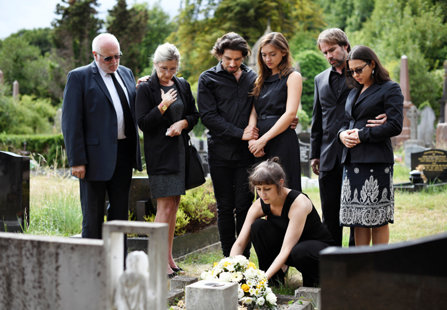Three Common Misconceptions about Drug and Alcohol Treatment

Finding help for a loved one who needs addiction treatment is often a confusing, frustrating, and harrowing experience that millions of Americans go through each year. With that many people looking for treatment, there are seemingly endless options on the internet. However, there is a lot of misinformation and confusing guidance as well, and in times of crisis, it’s hard to know where to turn. To make matters worse, common misconceptions often get in the way of finding help for the person and ultimately increase the risk of death.
These are three of the most common misconceptions that I hear when it comes to getting help for an addict. These things will put a wall between your loved one and the help they need:
- An addict must hit rock bottom before they can recover.
- An addict must be ready to change and be willing to do whatever it takes.
- Replacement drugs are the gold standard for addiction treatment.
Hitting Rock Bottom

One of the most common misconceptions I hear is something often said in various 12 step meetings: an addict must hit rock bottom before they will accept help. While it’s true as a person becomes more addicted, they fall lower and lower into a downward spiral of addiction, the idea that there is a bottom for every addict is often false. Unfortunately, that bottom for many could be death.
Waiting for someone to hit “rock bottom” is waiting for things to get worse and worse until your loved one is serving serious time in the last place you would ever want to see them, or until they are no longer with you. Both are much too late.
They Must Be Ready
Another concept that has become firmly rooted in many circles regarding addiction is that an addict will not change until they are ready. Trying to help them before they are ready, it is believed in these circles, is impossible. In fact, I believed this at one time. I heard it many times from professionals and family members alike throughout the years that I spent abusing drugs. Luckily, my family found a better solution for me.
Often, a refusal to accept help is the result of a lack of knowledge. Addicts fear what life may look like without drugs, and for many, the thought of withdrawal is a constant reminder that nothing good can come from sobriety. It’s this lack of knowledge that drives many addicts away from the help being offered. Without knowledge, there can be no understanding, and without understanding, help is often denied.
For example, if you were going in for open-heart surgery and the surgeon came to you and asked you which procedure you wanted him to perform, you would be at a loss. Without knowledge, there is no way you could know the life-saving answer. Expecting addicts to make a life-saving decision on their own is like asking the surgery patient which procedure they would like. Sometimes the cost of waiting for them to understand is their life.
Families can get stuck in a vicious cycle of continuously being manipulated and lied to by their loved ones. This cycle must be broken. If you are not able to get your loved one to agree to receive help, then seek help to accomplish this. It is important not to get stuck in the feelings of “I can’t make them go” or “they are not ready.” You have to decide for them and then make it happen. While getting them to agree to go to treatment might seem impossible, remember there are professionals who do this every day, and they CAN help!
Willingness to change does not usually start with the addict; it starts with the family.
Misconceptions of Medication-Assisted Treatment
Medication-assisted treatment is gaining rapid acceptance in many treatment facilities because of its apparent effectiveness in protecting society from addiction. While it’s true most addicts would prefer not to be using an illegal substance, giving them a legal replacement does not equate to true recovery. According to reports, exacerbating the problem is the lack of counseling and support services provided to addicts while on these treatments. It certainly seems as if the goal of these treatments is to keep people on drugs rather than help them alive without them.
I have heard many times, “I don’t like him/her being on suboxone, or methadone, or Subutex, but I would rather have him/her on that than on heroin.” This unfortunate choice is a seemingly impossible one, but it has an answer that doesn’t involve more drugs or continued addiction.

The solution to these problems begins with the realization that a person does not want to be an addict. Addiction is not the result of poor morals or of bad decisions. Yes, addicts make bad decisions, and many have poor morals as a result of their addiction, but they did not begin that way. They are not inherently broken, nor are they victims.
The beginning of the road back starts with the realization that life is worth living free from drugs and alcohol, that there is something out there beyond just being sober. That doesn’t mean the road is easy and there are still many pitfalls that stand in the way.
One of the first barriers to overcome is finding a rehab, and I’d like to leave you with some advice. I’m rarely the first person someone has spoken to, and often not even the first rehab a person has attended. Too often, I see families making choices for rehab based on the activities or the location, and often because they are trying to appease the addict in a desperate attempt to get them to agree to go. Remember, amenities are nice. However, don’t be distracted from the main purpose, which is to restore a person to optimal health and ability and not to just accumulate “clean time.”
Beginning the road to recovery is not easy, and I see families and addicts make decisions based on these misconceptions every day. It leads to a revolving door of continuous treatment that yields no results and, ultimately, death. The time to act is now.
Sources:
- https://via.library.depaul.edu/cgi/viewcontent.cgi?article=1368&context=jhcl
- https://www.drugabuse.gov/sites/default/files/drugfacts_treatmentstats.pdf


